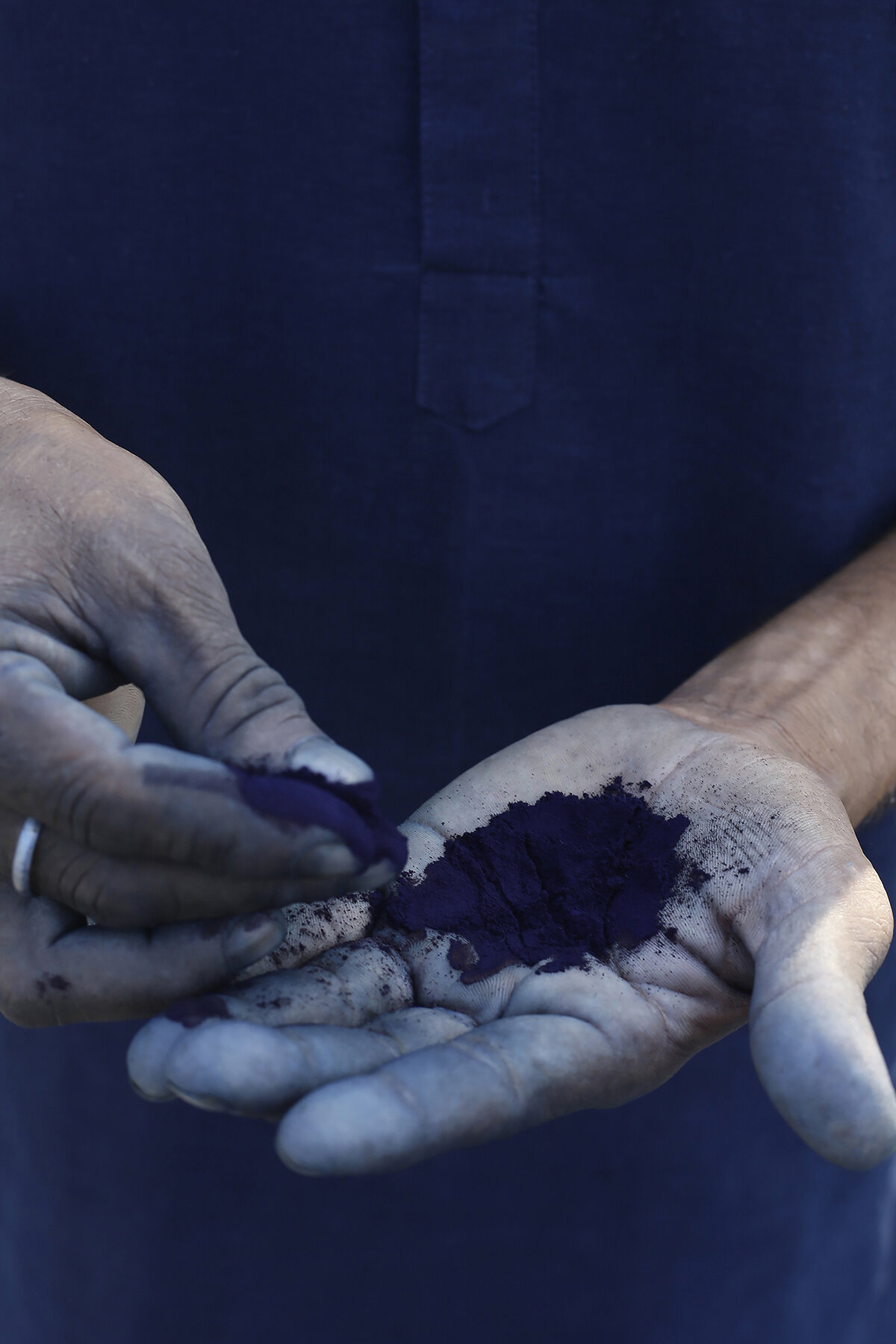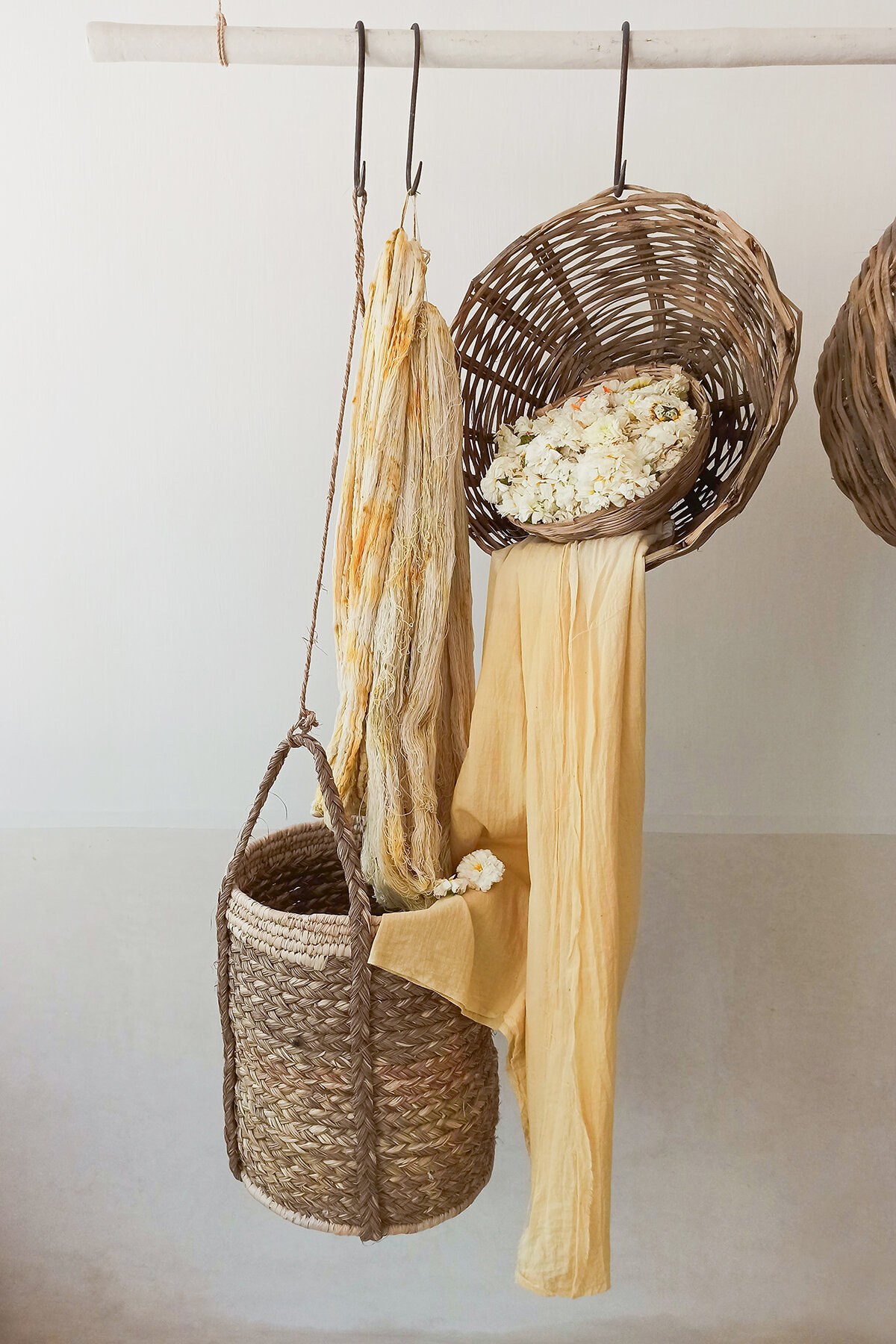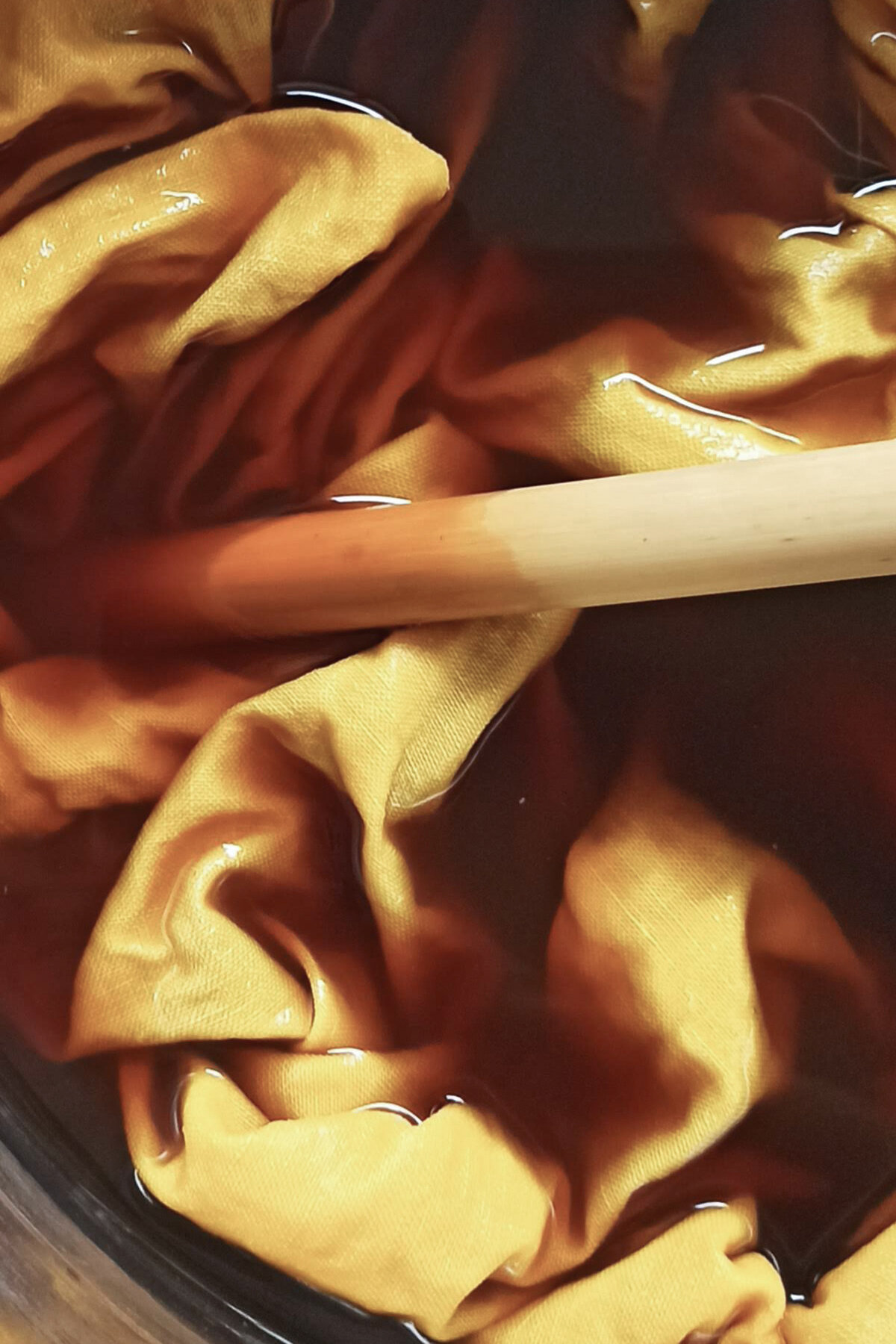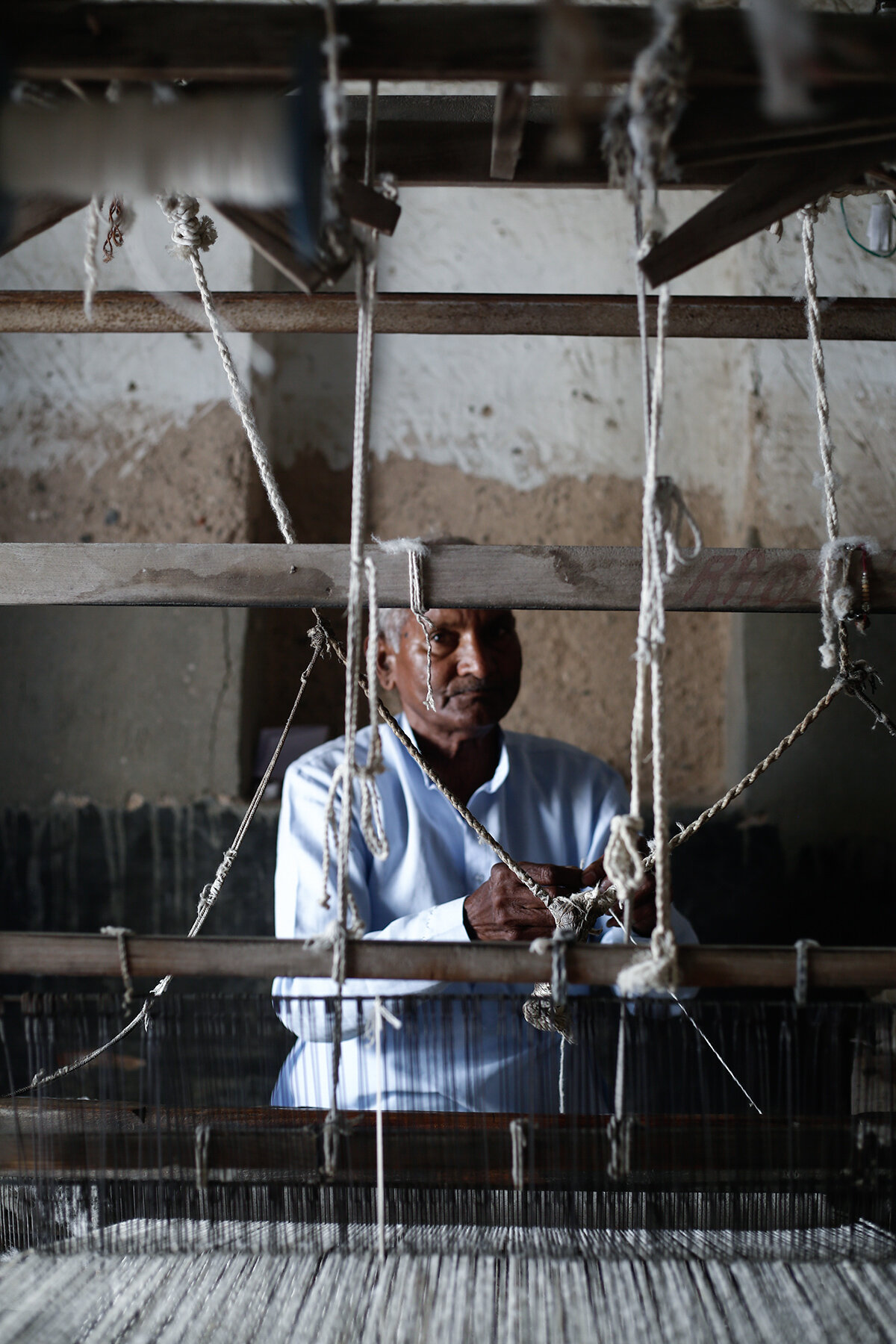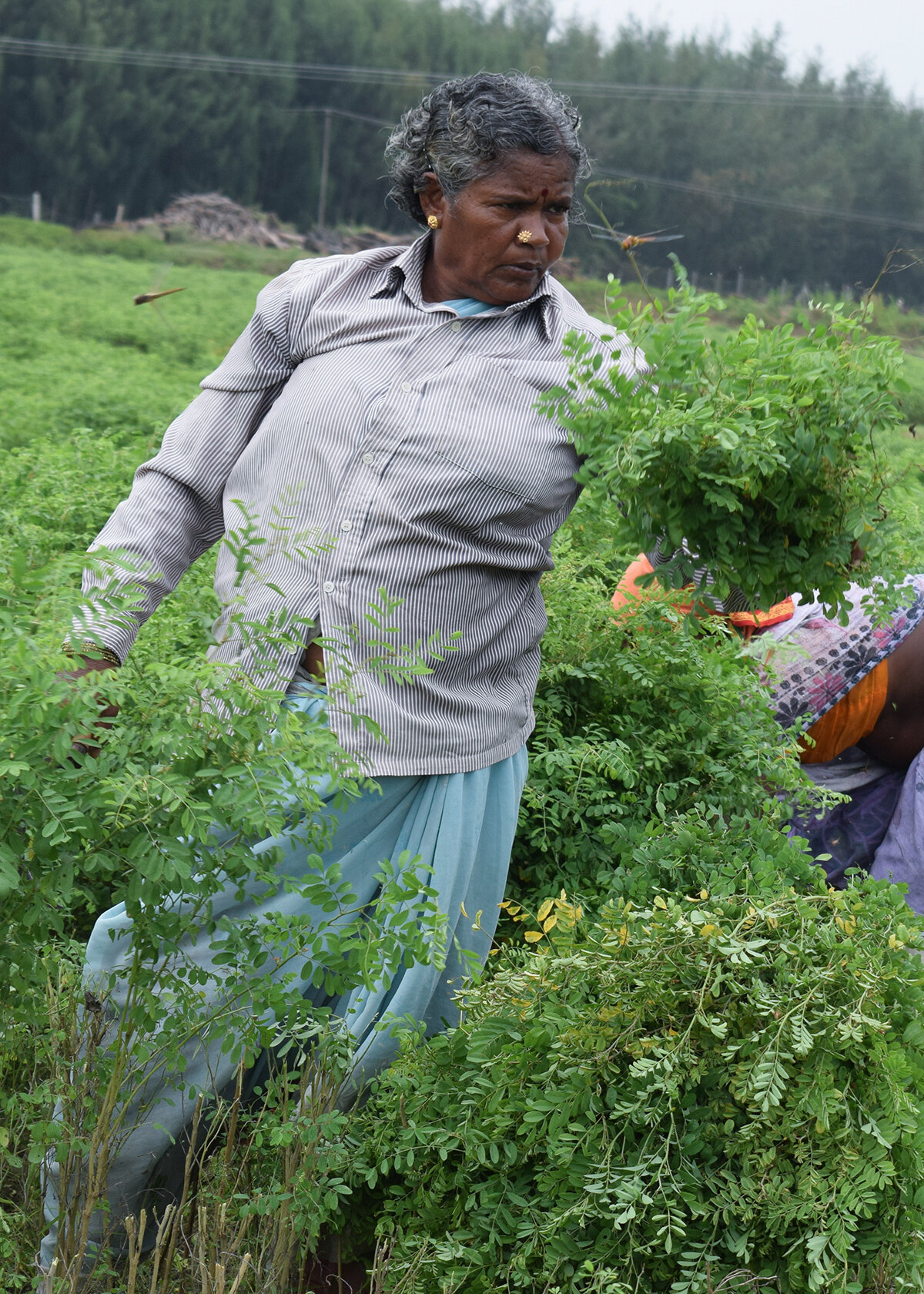The Nila organisation sits at the intersection of craft, design, sustainability and community empowerment. A ground-breaking non-profit initiative, Nila is unique worldwide in its scope, encompassing all stages of the Indian craft value chain. Thoughtfully envisioned, innovative in method and sensitive in execution, the foundation addresses the core needs required for the survival of a progressive, thriving craft industry in today’s global economy.
Nila was founded in 2016 with an in-depth assessment of the existing craft ecosystem and its challenges. We identified the problems that needed to be addressed, for example crafts communities showing exemplary skill yet lacking the required exposure or tools to continue their traditions; craft practitioners forced to abandon the sensitive practices of their ancestors in favour of polluting, unsustainable quick-fixes; a lack of understanding and appreciation of traditional craft processes in the market; a proliferation of harmful chemicals where natural ingredients were traditionally used; a lack of infrastructure available to correctly dispose of chemical waste. We also found solutions, such as incredible grassroots organisations already established to revive pure craft forms and support their communities; accomplished artisan guides - custodians of traditional expertise who are still very much part of the fabric of the foundation today, as well as traditional indigenous knowledge systems providing the key to a more sustainable future.
In 2019, we opened Nila House in Jaipur - an interactive beacon of excellence, honouring and celebrating the craft traditions of India within one of India’s oldest craft centres. Nila House is the public-facing side of a vast and complex project which will only expand and deepen its reach in years to come.
Although based in and focused on Rajasthan, Nila’s work is pan-India, across dozens of craft traditions. Our principal activities sit within the following spheres -
NATURAL DYES
The dye artisans of India, whose ancestors worked in harmony with nature for thousands of years, are now almost exclusively using synthetic dyes due to market demands. The water used is often not disposed of properly and many dyers suffer from adverse health effects. Chemical run-off contaminates crucial waterways increasingly every year as the industry expands. Nila works intensively with artisans from natural dye communities across India to help them revive this near-extinct craft form and knowledge base.
“Nila” is the the name for the colour indigo in Hindi. Indigo dye is very much part of India’s ancient traditional heritage; the word itself stems from the Greek Indikon, meaning ‘from India’. Natural indigo dyeing, while necessitating an investment of time, resources and ancient knowledge, is a regenerative craft - meaning that it does not only avoid a harmful impact on the surrounding environment, it creates a positive one. The waste water from natural indigo dyeing can be used as irrigation for crops, and the nitrogen-rich plant waste is a natural fertiliser. Indigo is a strong focus at Nila, however we work with a gamut of colours derived from local flowers, herbs, minerals and food waste.
HANDLOOM WEAVING
Nila aims to slowly re-introduce chemical-free, decentralised systems back into the supply chain. An important focus in this effort is on hand-spinning and handloom weaving. Handloom weaving, in its myriad forms, is crucial to Indian craft heritage. From fine muslin jamdanis of West Bengal to the cotton pit-looms of Kutch, Nila works hand in hand with India’s weaving communities to provide support; skills building; production orders; market linkage and the promotion of their incredible skills.
The decision to support handloom weavers stemmed from a need to preserve an essential, endangered craft, to support a large network of artisans’ livelihoods and to promote more sustainable production ecosystems. When the farm-to-textile chain remains people-centric and processes are carried out in rural homes rather than in centralised factories, waste and pollution are heavily minimised. Additionally, artisans are able to remain true to their generational heritage and earn a dignified living while doing so.
HAND-SPINNING
The charkha, or spinning wheel, is the backbone of rural textile systems in India. Spinning is an ancient textile craft, very sacred in India particularly, in which plant or animal fibres are drawn together to form yarn. Traditionally, hand-spinning is practised at home by women. Nila’s journey into hand-spinning began years ago on amber charkhas in West Bengal and expanded significantly during the lockdown of 2020 throughout Rajasthan, Gujarat and Nagaland with our respective partners in these regions. This effort is central to our pledge to support both women in craft and indigenous, ecologically sensitive crafts. We support an ever increasing number of spinners in rural craft clusters through training initiatives and yarn production. Gandhi believed that “"It is in the daily life where dharma and practicality come together and the spinning wheel is the realisation of this possibility."
Indigenous strains of cotton fibre are provided to the spinners by Nila wherever possible, procured from local farmers..
FARMING
At the base of the craft value chain lies the farming of textile fibres. Farming supports all that we do and Nila increasingly strives to support responsible, small-scale farmers of indigenous cotton and indigo. We provide Indigofera Tinctoria seeds and training to budding indigo farmers across India as an effort to revive this low-maintenance and nutrient-rich crop and the craft it supports. Nila conducts in-depth research into the revival of “desi” or indigenous cotton strains as an effort to decrease reliance on polluting GMO cotton crops. The many indigenous cotton strains of India are naturally adapted to their environment and therefore do not require excess water, fertilisers or pesticides. They are naturally “organic” although many farmers cannot afford the certification process. Alongside our research, we directly support the crops of indigenous tree cotton farmers in Nagaland and work extensively with local kala cotton in Kachchh.
A RANGE OF TRADITIONAL CRAFTS
Nila engages with and supports a gamut of traditional craft practices for example hand block, dhabu and natural screen printing; a wide range of embroidery techniques; ceramics; basketry; eco-printing and handmade paper making. India is full of rich handicraft traditions which are very much alive today, although they are often undervalued and overlooked in favour of cheaper or faster production processes. Nila’s core belief is that there is such a thing as responsible, earth-nourishing consumerism. In order to get there we need to learn about the incredible processes behind hand-crafted products and listen to the artisans’ stories - their cultural heritage is woven in every piece of cloth, and their skill and patience are to be found in every embroidery stitch. We look forward to taking you further along this journey with us.
OUR FOUNDER
Carole Bamford founded Nila out of her love for India; her passion for textiles and craft and an environmental commitment to the belief that if we look after the land it will look after us, now and for generations to come.


